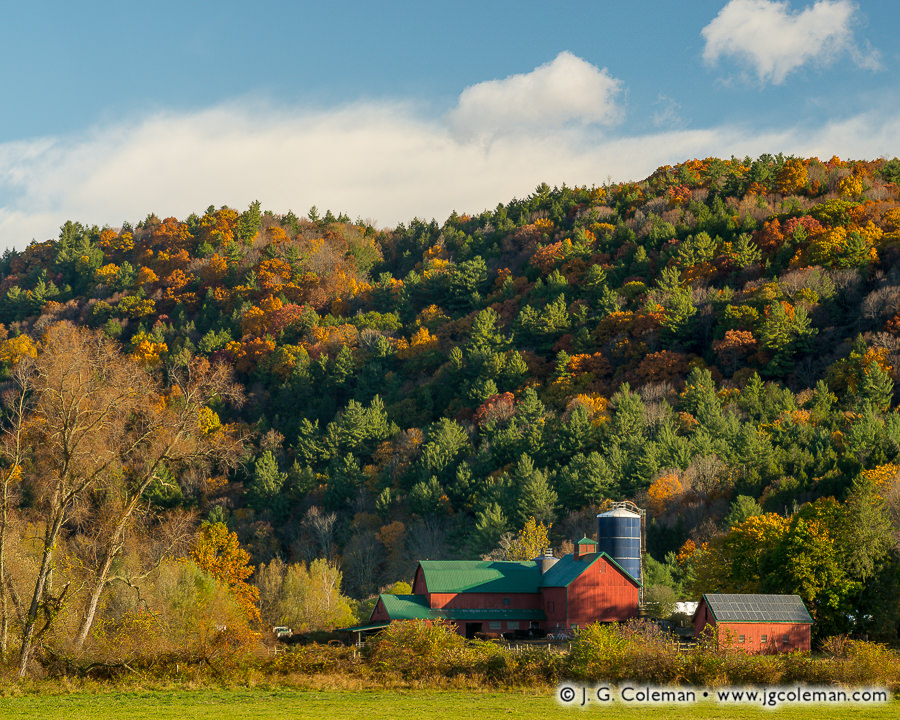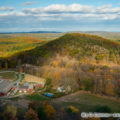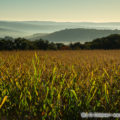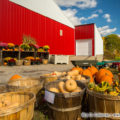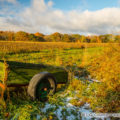
Salisbury, Connecticut
© 2016 J. G. Coleman
Barns nestle into the shadowy foot of a steep hill in Connecticut’s rugged northwest. The forest canopy has noticeably thinned as the latter days of October grip the landscape, only evergreens and a few stubborn broadleaves retaining their foliage.
In the 1830s, J. W. Barber described Salisbury not only as a farming community, but also as being “much celebrated for its very rich and productive iron mines”. The first forge had been constructed there in 1732 and was followed in time by several dozen more that came to dot the Housatonic Valley in the 19th century. Barber reported that thousands of tons of ore were being extracted each year from Salisbury alone at a site referred to as “Old Ore Hill”.
But, as was the story with so many of New England’s early industrial pursuits, the burgeoning population centers further west gradually made it less practical to have iron operations centered in the hills of the Housatonic Valley. In 1923, not quite a century after Barber swooned over Connecticut’s mighty iron mines, the last of the state’s blast furnaces was extinguished. Today, the sparsely-settled forests of Salisbury offer little trace of its illustrious industrial past.
Purchase a Fine Art Print or Inquire About Licensing
Click here to visit my landing page for “Yankee Farmlands № 89” to buy a beautiful fine art print or inquire about licensing this image.
Want to See More?
Be sure to check out all of the work from my Yankee Farmlands project.

